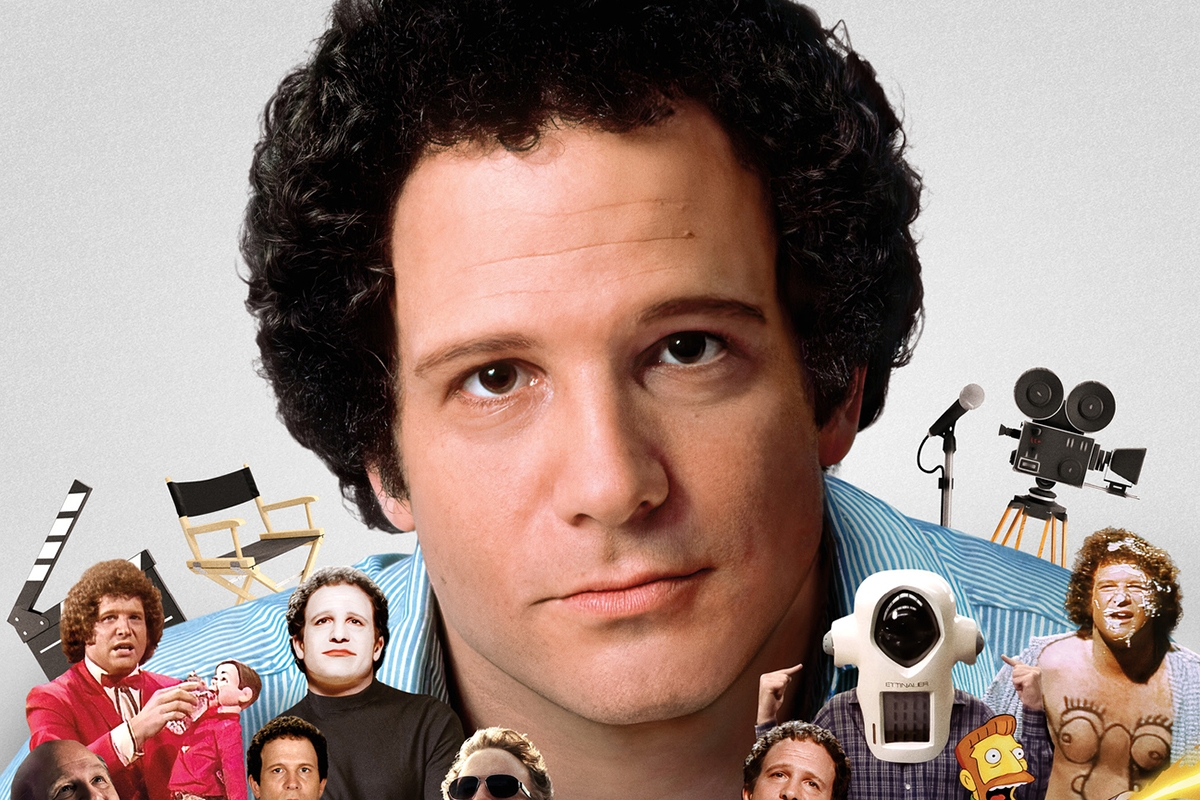They don’t make them like Albert Brooks anymore. In fact, I don’t think they ever did. The Jewish comedian, actor and director, born Albert Einstein in Beverly Hills in 1947 (when he changed his stage name to Brooks, he joked that “the real Albert Einstein changed his name to sound more intelligent”) is a singular kind of talent.
“He was the first kind of alternative comic,” Jon Stewart says in “Albert Brooks: Defending My Life,” a documentary about the comedian now streaming on Max. Ben Stiller adds that watching him on TV felt like “he was speaking directly to me.” A few minutes later, director Steven Spielberg calls him “a comedic tornado,” and Sarah Silverman is seen laughing heartily at a comedic sketch of his.
Brooks is sort of an original “nepo baby,” but one of the comedy world. In the documentary directed by his longtime friend and high school classmate Rob Reiner, viewers get both an intimate sit down with Reiner and Brooks as they discuss his life, and also an impossibly impressive cohort of actors, filmmakers and comedians who all seem equally in awe of Brooks’ gift. Yet, perhaps more delightful than any of this is the chance to revisit the work of Brooks, from his early comedy to his unforgettable movies.
The idea of mortality, of “defending your life,” is one that Brooks got familiar with early on, when his father, Harry Einstein, the Jewish comedian and son of Russian Jews whom many knew as Parkyakarkus, had quite a public death at a historic Friar’s Club event where he introduced Lucille Ball. After giving his comedic monologue, he sat back down on the dais and died. Brooks was 11 years old.
In the documentary, Brooks and Reiner visit his dad at the Home of Peace mausoleum in Los Angeles. “I miss him,” Brooks tells his friend.
Brooks also talks about his Jewish mother, Thelma Leeds nee Goodman, also born to Russian-Jewish immigrants and a retired actress who was the inspiration behind his movie “Mother,” in which she is played by Debbie Reynolds. The movie is about a writer who is constantly looking for the approval of his mother, and who realizes that part of her inability to truly be happy for him is her own abandoned dreams of being a writer. Brooks, who always looked, and never quite found, his own mother’s unconditional pride and approval, felt that she probably regretted leaving her career as an actress behind.
Yet Brooks got plenty of accolades for his work early on and throughout the rest of his life — from Carl Reiner, who once said that the funniest person he knew was a “16-year-old boy named Albert Einstein,” and from the myriad of talent featured in the documentary, including Judd Apatow, Conan O’Brien, Jonah Hill, Larry David, David Letterman, Chris Rock and even Alana Haim, who says that after watching his film “Modern Romance,” she was always looking for her own Albert Brooks.
Even without all those testimonies, you would know, undeniably, what a talent Brooks is just by watching those early sketches. I laughed so much at them it hurt. Brooks changed comedy, not just by showing an alternative to the straight-laced standup comic, but also with his early involvement with shows like “Saturday Night Live.” Silverman says that without him, the show wouldn’t have guest hosts and shorts. One of those comedic shorts he did early in SNL’s run is one in which Israel and Georgia decide to change locations to solve the crisis in the Middle East. It is so very funny and timely as ever.
Brooks doesn’t just get accolades for his comedy, but also for his acting — Judd Apatow calls his role in “Broadcast News” “the north star for everything” — and for his amazing movie-making.
Astrophysicist Neil deGrasse Tyson calls his movie “Defending Your Life” one of “the most insightful things” he’s ever seen, and one that he thinks about often in his own work. The movie, in which a man defends his life after his death, is a movie with “no religion” but about fear, and very much inspired by Brooks’ father’s passing.
The last movie he made, 2005’s “Looking for Comedy in the Muslim World,” is indeed about religion, and while it never got a wide release, Brooks takes special pride in at least one particularly surprising Jewish joke in the film.
The documentary also includes extremely endearing and funny moments involving Brooks’ family — his wife, Kimberly, who recalls “making out for the first time to the soundtrack of ‘Schindler’s List,'” and who calls him “a mensch,” and his children, Jake and Claire, who were especially marked by a movie their father might be best known for with the youngest generation of viewers, “Finding Nemo.”
Depending on how old your are, and when and where you grew up, memories of Albert Brooks and the ways he changed your life might resurface as you watch the documentary — how he made you laugh, distracted you, or even gave voice to one particularly loving father in a Pixar movie.
Everything Brooks has done is a bit difficult and against the mainstream, and so he has been constantly “defending his life.” Yet what strikes me most is the remarkable gift that Brooks has. The funny lines flow out of him like water. His movies feel almost effortlessly insightful. If you are one to believe in God-given gifts, his would certainly be undeniable.








